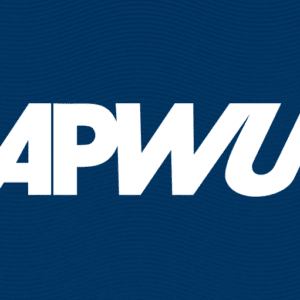November 16, 2007
APWU-Backed Bill Introduced in Congress
Legislation Would Require Bargaining Over Subcontracting
The APWU won a significant victory on Nov. 15, when Rep. Stephen Lynch (D-MA) introduced legislation that would require the Postal Service to bargain with postal unions before making a commitment to significant subcontracting. H.R. 4236 would require the USPS to submit to arbitration if management and the affected unions were unable to reach agreement. The APWU has been strenuously advocating such legislation for several months.
The bill would apply to any private contract involving mail processing, mail handling, or surface transportation of mail, provided that over a 12-month period the contract involved the equivalent of $5 million or 50 work-years.
“This is an important win for our members,” said APWU President William Burrus. “Under the terms of the current Collective Bargaining Agreement, the Postal Service is able to avoid bargaining over subcontracting. We have been successful in negotiating a requirement that the Postal Service ‘notify and consult’ with the unions when it contemplates subcontracting, but we have been unable to achieve real bargaining over whether or not specific activities will be subcontracted.
“The requirement to bargain will enhance our ability to oppose wasteful, inefficient and detrimental subcontracting,” he said. “Too often contracting out ends up costing the Postal Service more than if the work were performed by postal employees, and too often subcontracting is ineffective and the contractors’ service to the public is poor.”
“I applaud Rep. Lynch for introducing this bill, which will be beneficial for the Postal Service, postal workers, and the American public,” he said. “The APWU will work with him to secure co-sponsors for the legislation, and to win support for a companion bill in the Senate.” Burrus also praised the efforts of the union’s Legislative Department in securing support for the bill.
The APWU first advocated such legislation in testimony Burrus offered to the House Subcommittee on Federal Workforce, Postal Service, and the District of Columbia on July 19. In testimony before a Senate subcommittee the following week, he said that the USPS “has begun to travel resolutely down the road of privatization,” without authorization from Congress or the American people. The subcontracting of postal work, he warned, “is just one aspect of a dangerous trend: the wholesale conversion of a vital public service to one performed privately for profit.”
In his congressional testimony, Burrus called on the legislators to act. “On the critical issue of privatization of the United States Postal Service,” he said, “it is imperative that Congress take a stand and insist on its right — its responsibility — to set public policy.”
“If you believe, as we do,” he testified, “that the nation’s mail service demands a level of trust between the USPS and the American people that requires the use of dedicated, trustworthy, career employees — you can achieve your objective without bargaining in our stead. You can accomplish this goal by requiring the Postal Service to negotiate over subcontracting. This simple, minor modification would place the issue in the forum where it belongs.”
Congress has previously granted postal unions the authority to bargain, Burrus told lawmakers, “and we have applied this right consistent with your intent. To address the important issue of subcontracting, we need the opportunity — and that will require your assistance.”
Regarding the new bill, Burrus said that postal workers should contact lawmakers and urge them to support it. “It is imperative that members of Congress and legislators at all levels of government hear from their constituents that this legislation is important to the future of the Postal Service and to postal workers.”
APWU activists at the state and local level should make plans to win support from legislatures throughout the country at the city, state and national level, Burrus said. “The union’s national grassroots coordinators will soon be employed, and their first priority will be to garner co-sponsors for H.R. 4236.
“We have a long road ahead, with a great deal of hard work before us,” he said. “There are miles to go between the introduction of a bill and the passage of legislation, but we have taken the first step. Our Legislative Department worked with Rep. Lynch’s staff through several drafts of the bill before it was submitted to Congress.
“This is a historic piece of legislation for APWU members,” Burrus said. “Its introduction is cause for celebration.”



